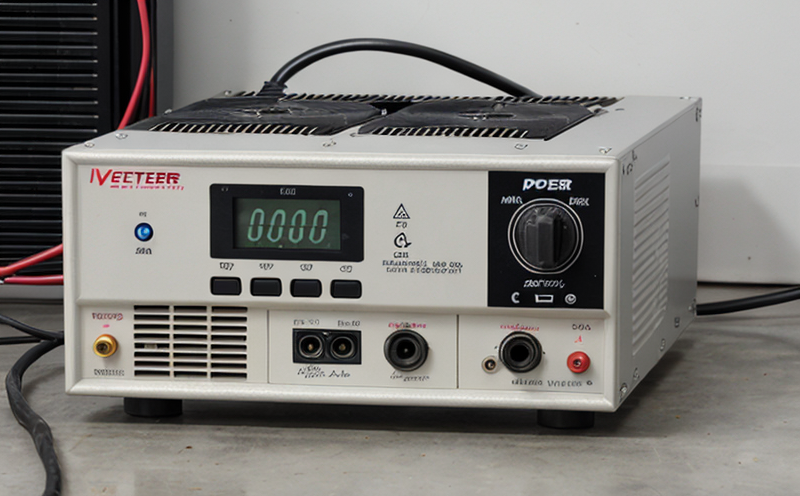CENELEC EN 62909-2 Grid Support Function Testing of Smart Inverters
The CENELEC standard EN 62909-2 specifies the grid support functions for inverters that connect to power systems. This testing is essential for ensuring compliance with regulatory requirements and for validating the robustness, efficiency, and reliability of smart inverters in various grid conditions.
Smart inverters are critical components in renewable energy generation and distribution networks. They provide services such as reactive power support, voltage regulation, and frequency control to enhance grid stability and performance. The testing outlined in EN 62909-2 ensures that these devices can function reliably under a wide range of operational scenarios.
This standard is part of the broader family of standards designed for photovoltaic (PV) power systems, which includes inverters and other key components. The specific focus on grid support functions in EN 62909-2 aims to ensure that inverters can contribute effectively to the stability and resilience of the electrical grid.
The testing procedures defined by this standard are rigorous and comprehensive, covering a variety of operational scenarios designed to simulate real-world conditions. These include:
- Reactive Power Support: Ensuring the inverter can provide reactive power when required by the grid.
- Voltage Regulation: Testing the ability to maintain voltage levels within specified tolerances.
- Frequency Control: Verifying that the inverter can assist in maintaining grid frequency stability.
- Short-Circuit Current Limiting: Ensuring that the inverter does not exceed safe limits during fault conditions.
- Power Factor Correction: Testing the inverter's ability to correct power factor issues within the grid.
- Harmonic Emission: Assessing the harmonic emissions generated by the inverter, ensuring they do not interfere with other equipment or cause harm.
- Interharmonics and Subharmonics: Evaluating the presence of interharmonics and subharmonics that can affect grid stability.
The testing procedures are designed to be conducted in controlled laboratory environments, allowing for precise calibration and simulation of real-world conditions. This ensures that the results obtained are accurate and reliable, providing a clear indication of an inverter's ability to perform its intended functions within the grid.
Compliance with EN 62909-2 is crucial for manufacturers, as it provides confidence to customers that the product meets international standards. It also ensures that inverters are compatible with a wide range of power systems and can contribute effectively to grid stability and efficiency.
The testing process typically involves the following steps:
- Initial Setup: Calibration and configuration of test equipment to ensure accurate measurements.
- Test Scenarios: Simulation of various grid conditions, including normal operation, fault conditions, and recovery phases.
- Data Collection: Continuous recording of all relevant parameters during each test scenario.
- Analysis: Evaluation of the collected data against specified criteria to determine compliance with EN 62909-2.
- Reporting: Preparation of a detailed report summarizing the test results and any deviations from standard parameters.
The testing process is both complex and time-consuming, requiring specialized equipment and expertise. Our laboratory ensures that all tests are conducted in accordance with international standards, providing accurate and reliable results.
By ensuring compliance with EN 62909-2, manufacturers can demonstrate their commitment to quality and reliability, thereby enhancing the reputation of their products in the market. This testing is a critical step in the development and certification process for smart inverters, ensuring they meet the highest standards of performance and safety.
The impact of this testing extends beyond individual products; it contributes to the overall stability and efficiency of renewable energy systems. By validating grid support functions, manufacturers can play an important role in maintaining a robust and resilient power grid, supporting the global transition towards sustainable energy sources.
Eurolab Advantages
EuroLab, as one of Europe's leading testing laboratories, offers unparalleled expertise in EN 62909-2 testing. Our team of highly skilled professionals ensures that every test is conducted with precision and accuracy, providing clients with reliable results.
- Comprehensive Expertise: Our laboratory is staffed by experienced engineers who are well-versed in the latest standards and best practices for grid support function testing.
- State-of-the-Art Facilities: We operate cutting-edge laboratories equipped with advanced instrumentation, ensuring that all tests are conducted under optimal conditions.
- Rigorous Quality Control: Our processes are subject to strict quality control measures, guaranteeing the accuracy and reliability of our results.
- Compliance Assurance: EuroLab ensures that all testing is performed in accordance with international standards, providing clients with peace of mind regarding compliance.
- Dedicated Support: Our team offers personalized support throughout the testing process, ensuring that clients receive the assistance they need to meet their specific requirements.
By choosing EuroLab for your EN 62909-2 testing needs, you can be confident in the quality and reliability of our services. Our commitment to excellence and precision ensures that your products meet the highest standards of performance and safety.





